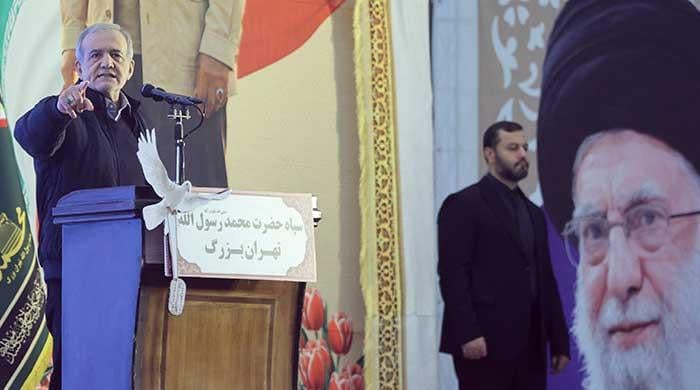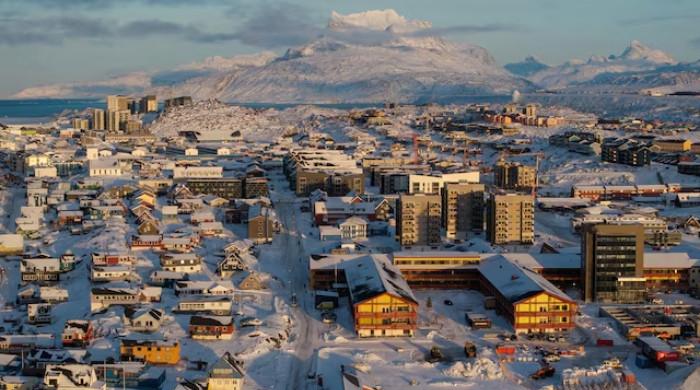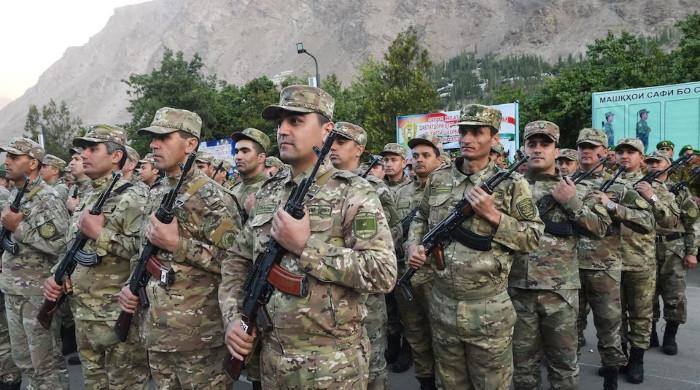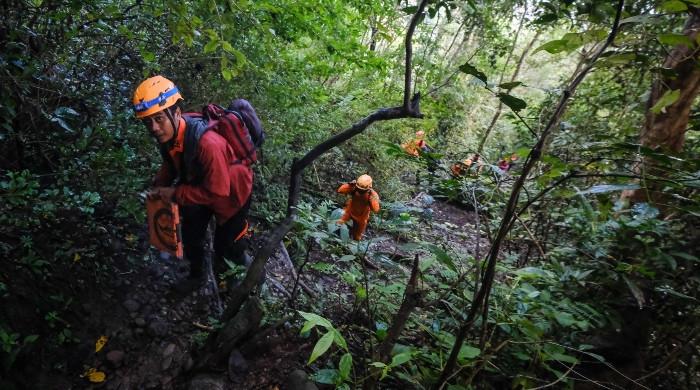Trapped and jobless, Gaza youth look for a way out
Rising number of Palestinians are making the perilous crossing to Europe, driven to escape repeated wars
March 22, 2023
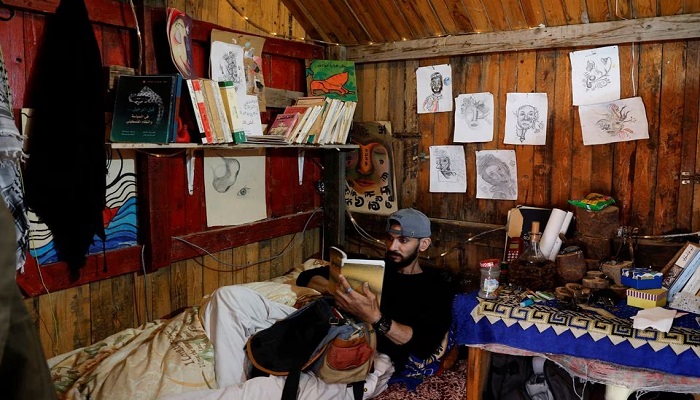
Sabreen Abu Jazar was only hours from completing the perilous journey from Gaza to meet her husband in Europe last month when her migrant boat flipped and sank 100 metres from the Greek coast. Her body was finally returned home this week.
"She phoned me just before travelling and asked me to pray for her," said her mother, sitting in a mourning tent in Rafah in the southern Gaza Strip.
After leaving Gaza in February, via Egypt, Sabreen flew to Turkey where she met her husband, who had migrated to Belgium years ago. They had planned to meet again in Greece, where he had promised a honeymoon but Sabreen never arrived. Three other brides were on the boat.
On Tuesday, around three weeks after her death, Abu Jazar's body was brought home for burial in her town of Rafah.
"I celebrated her as a bride, now she's returned to me in a coffin," said her mother-in-law Buthayna Abu Jazar. "A wedding turned into mourning."
A rising number of Palestinians are making the perilous crossing to Europe, driven to escape repeated wars and the Israeli and Egyptian blockade that has left Gaza cut off since the Islamist movement Hamas assumed power in 2007.
UN figures show more than 2,700 Palestinians arrived in Greece by sea in 2022, making up 22% of total boat arrivals, the highest of any national group. European Union data from last year also shows a sharp rise in asylum applications by Palestinians in Greece, the main point of entry to Europe.
Not all reach their destination. According to the Euro-Med Human Rights Monitor, more than 378 people have died or gone missing while attempting to migrate from Gaza since 2014. Three have died so far in 2023.
"Sabreen lived her 24 years amid a blockade and a bitter economic situation, and like any girl or a young man she quit Gaza hoping for freedom and a better situation," her uncle Alaa Abu Jazar said.
Political factions
Jobs in Gaza are scarce, for college graduates as well as others, and when a position arises, it often goes to someone with a connection to political factions.
Underlying the crisis is a 16-year-old Israeli-led blockade on Gaza, home to 2.3 million people, coupled with internal political divisions that have weakened Palestinians' political aspirations for statehood.
Ahmed Al-Deek, an official of the Palestinian Foreign Ministry, urged Palestinians from Gaza and refugee camps in Arab countries to shun illegal trips but said the Israeli-led blockade was the prime reason for Gaza youth leaving for a better future abroad.
Deek also blamed the continued internal divisions between Fatah and Hamas and urged "all officials in Gaza Strip to shoulder their responsibilities and resolve the problem of youth and offer them dignified life."
Gazans say they are ruled by three governments: the Palestinian Authority of President Mahmoud Abbas, who has limited self-rule in the Israeli-occupied West Bank, and which employs thousands of people in Gaza, the Islamist Hamas group, which runs Gaza, and Israel, the third entity that controls its de facto border.
Mohammad Kuhail, 26, a physiotherapy graduate, tried for six years to find a job in institutions run by Hamas, the United Nations or those affiliated with Abbas's Fatah movement.
"If I were from Hamas, they would have hired me," the 26-year-old said. "Fatah is the same, Fatah cares about Fatah people," said Kuhail, who whiles away his time in cheap cafes with other unemployed friends.
Six of his siblings are graduates, two of them engineers, and none of them has ever got a job, he said, leaving the family dependent on his father, a school guard.
Few jobs
According to Palestinian and United Nations estimates, youth unemployment in Gaza runs at about 70%, a figure which makes dreams of building any kind of future out of reach for most young people.
For its part, Hamas puts the blame for the dire economic situation on the shoulders of Israel, which has fought repeated wars with Gaza's Islamist rulers Hamas while maintaining its blockade of the enclave.
"Our problem is the occupation and isn't an internal problem," Ehab Al-Ghsain, Hamas-appointed deputy of the Gaza Labour Ministry, told Reuters.
In an effort to promote security along its Gaza border, Israel offers some 20,000 permits to allow Gazans to work in Israel.
In Gaza, Hamas says a permanent solution for unemployment is beyond its ability alone.
In 2022, Al-Ghsain's office created temporary jobs for 9,000 young people, a fraction of the 236,000 looking for work, he said. Even the 40,000 public servants it has hired in Gaza since 2007 have not received their full salaries.
In the heart of Gaza City, Saeed Lulu, a media graduate stands selling hot drinks to passersby and taxi drivers at a stall he calls "The Graduates stall". He is the only breadwinner for a family of six.
"I graduated 16 years ago and so far, I have failed to find a job," he said.
In that, he is a little different from other graduates. Maher Al-Tabbaa, a Gaza economic analyst, said fewer than 10% of around 14,000 students who graduate every year get jobs.
Standing outside Lulu's cafe, Majd Al-Jamal, 20, a college undergraduate, wondered whether she should complete her studies after seeing three of her siblings failing for years to find a job.
"I don't have much enthusiasm," she said. "We already know what is going to happen."






